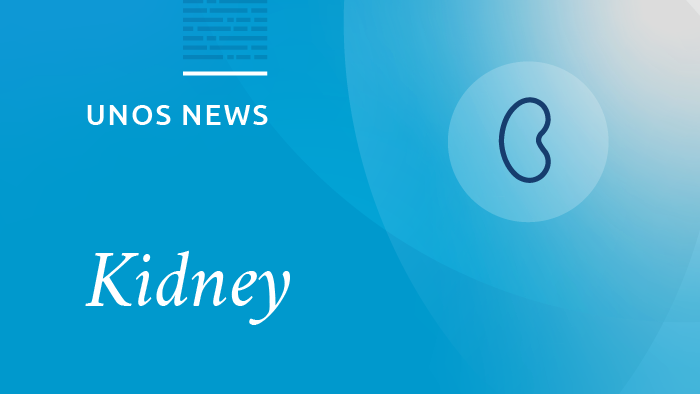A mother of a deceased donor, who wished to do more to help others in need of a transplant.
A young engaged couple, one with kidney failure and one who wished to help him but wasn’t a medical match.
A previous kidney recipient who faced difficult odds of getting another transplant.
Each of these people, and many others, turned to the OPTN/UNOS kidney paired donation pilot program, which has arranged 155 kidney transplants since its beginning on October 27, 2010. Several more transplants are scheduled to take place over the next several weeks.
“We’re proud that our program has provided additional transplant opportunities for so many transplant candidates,” said Mark Aeder, M.D., chairman of the OPTN/UNOS Kidney Transplantation Committee. “Almost a third of the people transplanted through the program were highly sensitized and would have had a long wait for a deceased donor kidney, if one ever became available. They are now enjoying a dialysis-free life.”
About Kidney paired donation
Kidney paired donation (or KPD) involves the matching of living kidney donors with recipients who are biologically compatible but did not know each other before entering the program In many cases, KPD donors originally hoped to help a relative or friend but had an incompatible blood or tissue type. Other donors are non-directed or “good Samaritan” donors, who volunteer to help anyone who may be a match.
“We run matches twice each week for potential donors and transplant candidates entered by any of our 155 participating kidney transplant programs,” said Ruthanne Leishman, RN, M.P.H., UNOS’ KPD program manager. “A typical match run would include about 250 potential donors and 240 candidates each time. When we identify potential matches, we then coordinate with the transplant programs where they’re located to make further arrangements. Half of the recipients who have been transplanted through our program received a transplant within about six months from the time they were enrolled.”
The program has helped people such as Ryan Dasilva, of Danbury, Ct., who needed a third kidney transplant at the age of 23. His mother had been a previous living kidney donor for him, and his father was willing to donate but was not a match. The OPTN/UNOS program facilitated a three-way match that allowed Ryan to receive a kidney from a non-directed donor and his father to donate to another waiting candidate, while a third recipient was also able to benefit from the exchange.
The transplant allowed Ryan to continue working as a patient care technician at a nursing home, with a goal of becoming a hospital surgical technician. Soon after the transplant, he commented, the opportunity he received “is just a godsend.”
Participating kidney transplant PDF link updated Jan. 2020

